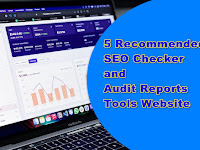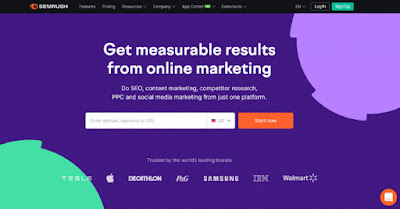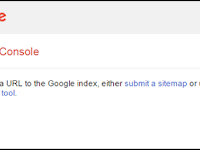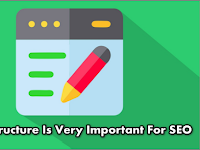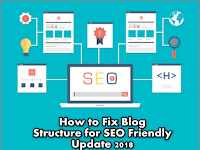As a website owner, of course we want our website ranking to be on the first page of search engines. To realize it is not an easy thing, because the website needs to be optimized with good SEO. SEO is one of the good strategies to improve the quality and quantity of traffic on a website, so that the website can be easily found in search engines.
Creating an SEO strategy to optimize a website is very important, but if the SEO effect you apply is not effective, you don't need to worry because now there are many SEO checkers and audit reports tools. With this tool we can measure the quality of the website from an SEO point of view. Now it is very easy to search or find it on the internet ranging from free to paid, depending on each need and of course there are differences between the two, which can usually be seen from what features can be accessed.
The existence of an SEO checker is very helpful in improving the quality of the website appropriately and effectively and can help in knowing various fundamental problems that can affect the performance of a website. Some of them are:
- SEO problems technically
- Website structure
- On page SEO
- Off page SEO
- Contents
- User experience problems
- As well as a few other things
What components need to be optimized on a website?
At the optimization stage so that our website can be ranked high on the first page of search results, there are several aspects that we can optimize, namely On page, Off page, and technical SEO.
It is clear that the parts that can be optimized are different aspects however, having the same goal is nothing but to get the best rankings on search engines. For these three aspects, the following is an explanation of the aspects that must be optimized which includes:
SEO On Page
On page SEO which can be referred to as on-site SEO is a way to optimize a website to get good rankings and organic traffic on search engines.
In addition to creating and delivering relevant and quality content, on-page SEO also includes optimizing attractive titles, tags, quality content, internal links as well as URLs and images. This is to ensure that the website has high authority and trust.
We should also always be updated about on page SEO as it has changed in a few years, so it is important to keep up and update on the latest way. If the on-page SEO on the website is good, then the content we create will be easily found by the target audience and can rank high on search engines.
SEO Off Page
Off page SEO is a step in optimizing SEO that is done outside the website you manage. This step is done to support on-page SEO that focuses on improving the internal factors of your website. In implementing off-page SEO optimally, you must use various supporting platforms such as online forums, social media, and other websites.
Link Building
Link building is a backlink building strategy or that aims to increase domain referral as an important factor that affects the increase in website rankings in search engines. Backlinks are links that are deliberately created in other websites that point to your main website. Link building itself is broadly 2 types, namely:
1. Internal Link Building
Internal link building itself is a strategy of building backlinks between one page and another page of your website (on the same website) and is interconnected or relevant.
2. External Link Building
While external link building uses other websites as a place to put links. Or in other words, you are looking for backlinks from outside websites that point to your website.
DA (Domain Authority)
Domain Authority is a score that shows how well a website ranks. The higher your DA score, the better the authority on your website for search engines.
PA (Page Authority)
Page Authority is the value of a page on a website for search engines.
Guest Blog
Guest blogging is an effort made by the owner of a certain website to put his web quality content into another website, for example done by being a guest writer on another site or blog.
Promotion
Promote certain content from your website to various potential platforms such as social media, YouTube, and other marketing platforms. This activity aims to attract the attention of the audience to visit your website.
Technical SEO
Technical SEO is an optimization done on the inside of the website. Technically, this optimization stage is the most difficult among other website components. The goal is to optimize the structure of the website so that its performance can be maximized and easily liked by search engine bots. The technical aspects of SEO itself include:
- Website structure
- Website speed
- Site security (SSL)
- XML Sitemap
- Website layout
- Website themes
- Navigation
Because the better the structure of your website, the easier it is for search engines to get to know the website. As a result, search engines easily index your site to make it easier for the audience to find.
Recommended SEO Checker Tools
The following are some recommended tools that you can use in analyzing the performance of a website.
SEMrush
SEMRush is one of the free tools that is very well known to be effective in analyzing a website. What is the reason that SEMRush is so popular?
This is because SEMRush has complete tools. For example, website audits and keyword tracking so that they can identify the right keywords to use. SEMRush tools also have an interface that can be said to be quite easy, without taking a long time the user can analyze problems on the website and how to optimize them.
Screaming Frog
Screaming Frog is an SEO audit tool for analyzing and auditing technical SEO issues. Some of the audit results that Screaming Frog can identify include broken links, duplicate content, generate XML sitemaps, pages with less optimized metadata, and many more.
These tools are available in both free and paid versions with different features. Obviously the paid ones have more complete features when compared to the free version.
Google Search Console
In the process of website optimization, Google Search Console is one of the free tools provided by Google. This tool is arguably important in supporting the website optimization process. Because it can provide information about graphs and user data organically, so it can help in monitoring the development of the website, especially in terms of SEO.
Google Search Console is one of the reliable tools for auditing website performance. With this tool you can find out the problems seen by Google when they crawl and index your website so that they can immediately make improvements.
Neilpatel
This SEO checker website is very well known in terms of SEO optimization as well as keywords. When compared to others, this Neilpatel has a simple layout and is easy for us to understand.
This tool is divided into four main categories, namely Health Check (website SEO health condition), Critical Errors (problems on the website that must be overcome), Warnings, and Recommendations (optimization suggestions that must be done). In addition, you can also find out the site speed that greatly affects the quality of a website. With features and a user friendly interface, those of you who are still new to SEO know very well what steps must be taken to improve website performance.
Ahrefs
Ahrefs is one of the SEO tools commonly used to make reports on website audits, backlink analysis, URL rankings, competitive analysis, and others.
Ahrefs also comes with How To Use information or a complete guide to each tool. So, anyone can use this SEO tool, both beginners and professionals. Some of Ahrefs' features can be used for free, but access is very limited. To get more access, there is a free trial for a few days.
Which SEO Checker and Audit Do You Use?
SEO checker is indeed quite effective for designing SEO strategies in optimizing your website. However, of course, expertise is needed in addition to relying on SEO checkers so that the SEO optimization you do is more optimal. Every SEO checker or SEO tool must have its own advantages, so there is no need to hesitate to collaborate more than one in optimizing the website you manage.
Those are 5 recommendations for SEO checker & audit reports tools that can be used for free. But to access more complete SEO features, you must use paid SEO tools to maximize your website optimization.
